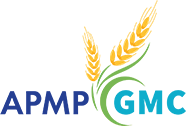By Margaret Helwig, CF APMP
Chances are, if you are reading this, than you are someone who believes in the importance of sound, well-written, and well-developed proposals. You know that we need to provide thoughtful, complete, and accurate information so that those tasked with making decisions based on the information provided can make the best decision for their organization (which is, of course, to choose your organization’s offered option). To provide these responses, we need information and a lot of it. And while we understand the importance of getting this message across, the urgency behind an RFP or related opportunity isn’t always quite so clear to the people who can provide us with that information.
I understand where they are coming from. While the timelines built into sales opportunities are a clear driving factor within the proposal industry, for many of our Subject-Matter Experts (SMEs), these deadlines are just another in a list of dates being thrown at them, accompanied by demands on their time and expertise. While some organizations have a corporate-wide environment that gives priority and significance to proposal development as an integral part of the business, not all of them do. When a SME has deadlines and demands related to their specific role, answering questions really is not an essential task in their day.
This can cause significant frustration for both the proposal development team and for the SME, who receives increasingly frequent requests and reminders that may feel a bit like biting flies. The end result is animosity between the parties (who should be working together), and often incomplete, taciturn, or overly complex responses that require additional follow-up and a repeat of the cycle. While the best case scenario is to have a corporate culture that supports and prioritizes working with the proposal development team, we all know that corporate-wide change can be slow to develop and difficult to drive from outside of the executive suite.
In the absence of (or in conjunction with) corporate culture, your best bet is to work on your interpersonal relationship with your SMEs. I know this is easier said than done, especially with variables such as distance, schedules, and increasing responsibilities, but a few moments throughout the day can really help develop a relationship that will mean that your requests for information are better received.
First things first – Make it Personal! I’m not saying that you have to become best friends. I am saying, take the time to get to know a little about the people you need to reach out to on a regular basis and be willing to share a little about yourself. Even small considerations, such as holding elevators and inquiring about weekend plans can go a long way. We have to admit that it is easier to ignore a request from JSMITH than it is to ignore one from Janet whose son plays soccer like your niece. It is also easier to find the time to help person who actually seems happy to say Hi at the coffee pot than the person whose face you can’t even imagine.
Second – Make the Time! Whenever possible, if you need more than a sentence or two from a SME, ask for a meeting or phone call, especially from a SME you may not have worked with before. Use the time to get a feel for how busy they are and to make sure that they know what you need. This is also a good chance to begin to or continue to develop that more personal connection. Be sure to let them know that you are also available if they have any questions or need any additional clarification. Also, be clear that if they are not the best person for the question, you will be happy to talk to who might be best if they can give you some idea where to start.
Last – Show Appreciation! Something as simple as a “Thanks for your help,” upon the completion of a project can go a long way. Acknowledging their role and willingness to work with you to their supervisor is also a good way to show you appreciate the time they took. This goes for your internal team as well. There is a reason that operant conditioning is used for training – we thrive on reward. Finally, be sure that you follow through. If you say, “I owe you a cup of coffee for this,” be sure to get them the cup of coffee (or send them a $5 Starbucks card if they are remote). I know that if everyone who said they owed me lunch followed through, I would not have to buy my own lunch for months. Because they never do, the words have become empty to the point that I appreciate the sentiment, but get annoyed with the phrase.
All of these should be fine-tuned to your personality, the culture and personality of your organization, and that of your SMEs (e.g. – don’t force small talk on the SME who chooses to take the stairs up five flights rather than ride an elevator with other people). If interpersonal communication is not one of your strengths, maybe start small. Say “Hi” in the hallway and pick up the phone when you need to clarify an idea they presented in a response. It is those individual touches that develop the relationships, meaning that when you need to ask for help or information, you aren’t just another username making demands. You become a friendly face who appreciates the hard work and expertise of the Subject-Matter Expert.
Margaret Helwig, APMP CF, has been working in proposal development in a commercial company for the past six years. In her previous life, she was a professor at a small college, teaching composition and business writing. Maggy holds a B.S and a M.A from Northern Michigan University, in English Literature and Pedagogy.
